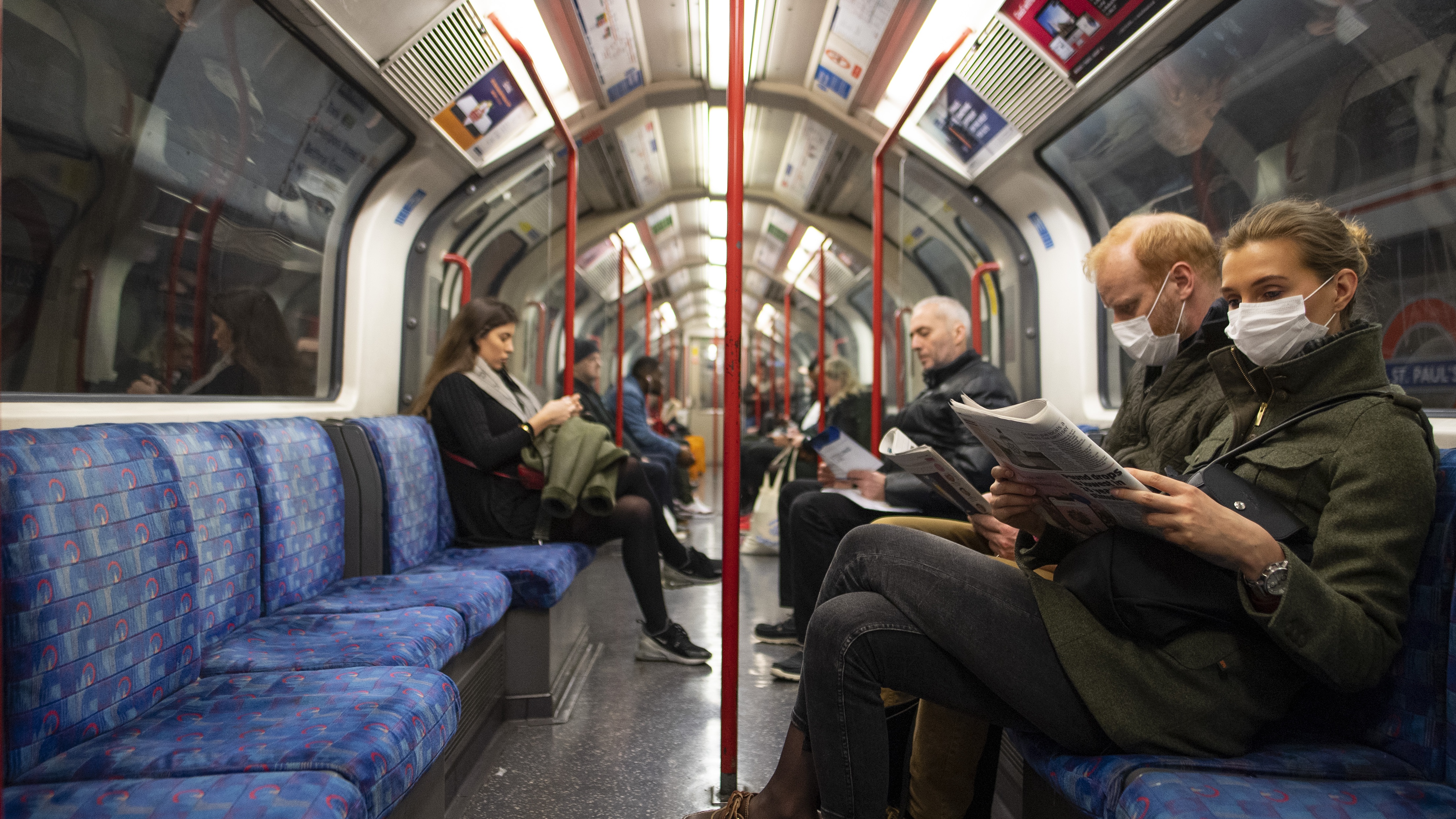Coronavirus: why does London appear to be riding the second Covid wave?
Capital city was expected to become a virus battleground but is stemming mass infections

A free daily email with the biggest news stories of the day – and the best features from TheWeek.com
You are now subscribed
Your newsletter sign-up was successful
Despite warnings from public health experts that London was likely to bear the brunt of a second wave of coronavirus, the capital is faring better than expected.
Data released this week by the Office for National Statistics showed 952 deaths registered in London in the week ending 6 November, which The Times notes is the “same number as would be predicted based on the average for the past five years”.
Health chiefs are even hoping this weekend could signal the “first decline in Covid cases in London since the start of the second lockdown”, the London Evening Standard says.
The Week
Escape your echo chamber. Get the facts behind the news, plus analysis from multiple perspectives.

Sign up for The Week's Free Newsletters
From our morning news briefing to a weekly Good News Newsletter, get the best of The Week delivered directly to your inbox.
From our morning news briefing to a weekly Good News Newsletter, get the best of The Week delivered directly to your inbox.
Supressing the spike
In the week ending 6 November, London was the only one of the nine regions of England used for official statistics not to register any excess deaths. And “by contrast, the 1,900 deaths registered in the north west were 496 higher than average, a difference of 35%”, The Times reports.
The current London rate of almost 200 cases per 100,000 people compares with a rate of 145.2 on 1 November, a relatively shallow rise. As a result of this relative containment of the virus, London has kept winter coronavirus hospitalisations lower than the rest of Britain.
Hospitalisations in London are currently at less than 150 per 100,000 people, compared to around 400 per 100,000 in the north west and Yorkshire and the Humber.
A free daily email with the biggest news stories of the day – and the best features from TheWeek.com
London Mayor Sadiq Khan yesterday said “now more than ever it’s vital that we continue to follow the rules because we still have some very difficult months ahead in our fight against the virus”. He added: “I’m pleased to say that the end is finally coming into sight.”
Quieter summer
There are a number of theories behind London’s better-than-expected performance in handling a second wave.
Londoners “moved and mixed less during crucial summer months”, The Telegraph reports, adding that during July, August and early September, “London’s bars, restaurants, non-essential shops and offices remained much quieter than those in other parts of the country compared to pre-pandemic times”.
Visits to pubs, restaurants and non-essential shops during the summer months “remained between 50% and 30% below normal levels in London”, analysis by the paper found, while in other areas around the UK “the same metric moved from 40% to just 10%” between July and September.
The Times, meanwhile, suggests that the capital may now have “some level of herd immunity” after a study in September showed 9.4% of Londoners testing positive for Covid-19 antibodies.
The next highest region, the north east, clocked in at 6.5%, while the city’s young population “may also mean a higher level of asymptomatic cases that are not being picked up by national testing systems”, the paper adds.
-
 Bad Bunny’s Super Bowl: A win for unity
Bad Bunny’s Super Bowl: A win for unityFeature The global superstar's halftime show was a celebration for everyone to enjoy
-
 Book reviews: ‘Bonfire of the Murdochs’ and ‘The Typewriter and the Guillotine’
Book reviews: ‘Bonfire of the Murdochs’ and ‘The Typewriter and the Guillotine’Feature New insights into the Murdoch family’s turmoil and a renowned journalist’s time in pre-World War II Paris
-
 Witkoff and Kushner tackle Ukraine, Iran in Geneva
Witkoff and Kushner tackle Ukraine, Iran in GenevaSpeed Read Steve Witkoff and Jared Kushner held negotiations aimed at securing a nuclear deal with Iran and an end to Russia’s war in Ukraine
-
 A Nipah virus outbreak in India has brought back Covid-era surveillance
A Nipah virus outbreak in India has brought back Covid-era surveillanceUnder the radar The disease can spread through animals and humans
-
 Covid-19 mRNA vaccines could help fight cancer
Covid-19 mRNA vaccines could help fight cancerUnder the radar They boost the immune system
-
 The new Stratus Covid strain – and why it’s on the rise
The new Stratus Covid strain – and why it’s on the riseThe Explainer ‘No evidence’ new variant is more dangerous or that vaccines won’t work against it, say UK health experts
-
 RFK Jr. vaccine panel advises restricting MMRV shot
RFK Jr. vaccine panel advises restricting MMRV shotSpeed Read The committee voted to restrict access to a childhood vaccine against chickenpox
-
 RFK Jr. scraps Covid shots for pregnant women, kids
RFK Jr. scraps Covid shots for pregnant women, kidsSpeed Read The Health Secretary announced a policy change without informing CDC officials
-
 New FDA chiefs limit Covid-19 shots to elderly, sick
New FDA chiefs limit Covid-19 shots to elderly, sickspeed read The FDA set stricter approval standards for booster shots
-
 RFK Jr.: A new plan for sabotaging vaccines
RFK Jr.: A new plan for sabotaging vaccinesFeature The Health Secretary announced changes to vaccine testing and asks Americans to 'do your own research'
-
 Five years on: How Covid changed everything
Five years on: How Covid changed everythingFeature We seem to have collectively forgotten Covid’s horrors, but they have completely reshaped politics